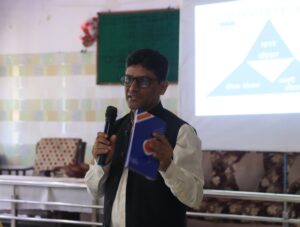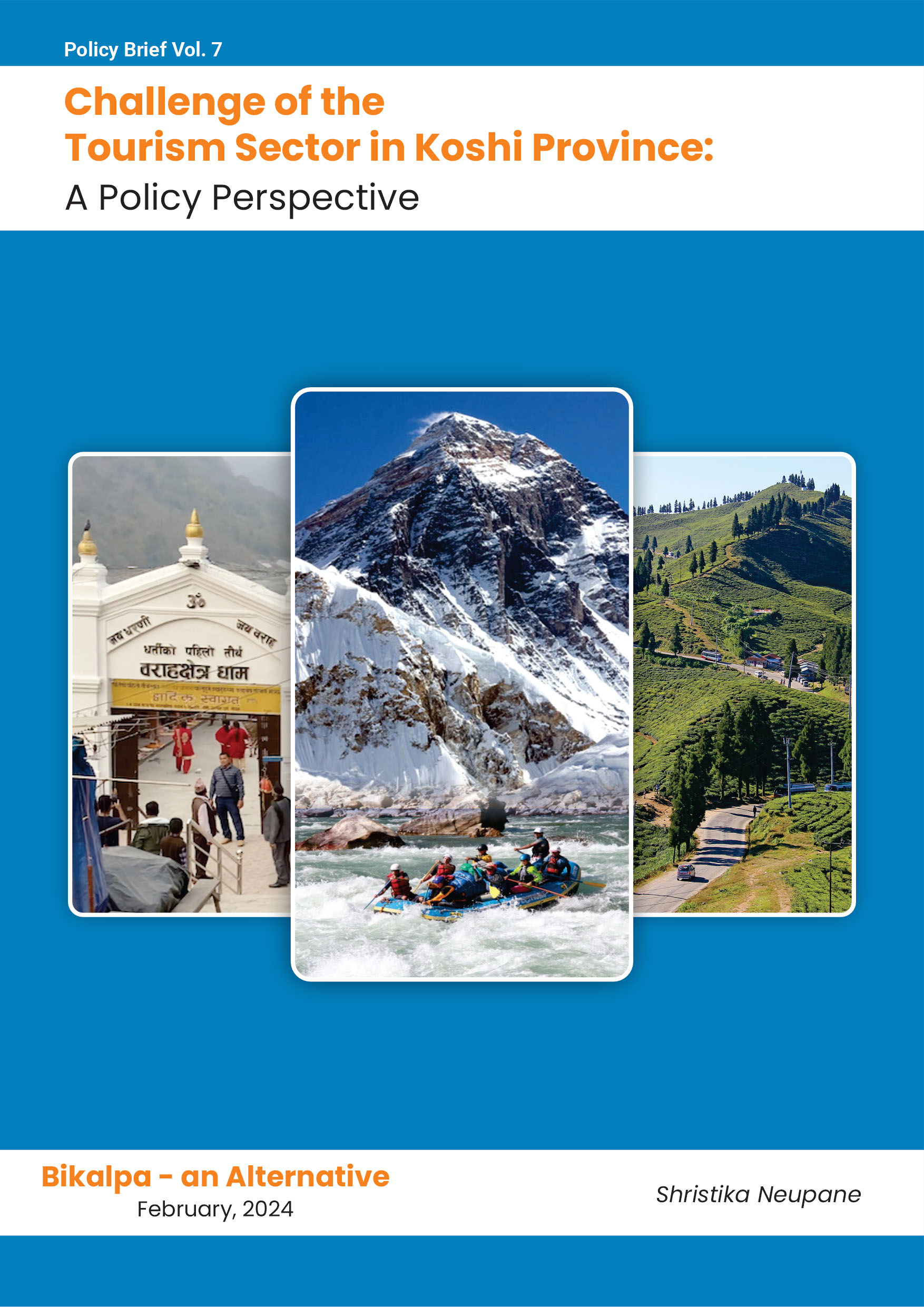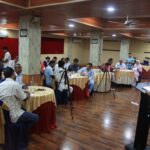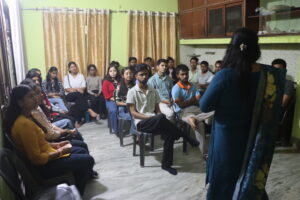On April 26, 2025, Bikalpa – An Alternative held its monthly interaction program featuring Advocate Koshraj Neupane as the guest speaker. The session centered on the Human Rights and Good Governance theme, drawing an engaged audience eager to explore these vital issues in Nepal’s current context.
The program began with a compelling moral story. A forest caught fire, and while all the animals and birds fled, one bird chose to stay behind. When asked why, the bird replied that the forest was its home and it could not leave during difficult times. It was hoped the fire would end, so it could help restore the jungle. Adv. Neupane used this story to encourage the audience not to lose hope or flee the country in times of hardship, but instead to remain and contribute to reshaping the nation.
He then elaborated on the concept of human rights, explaining that while they are not binding on their own, they have been incorporated into the Constitution of Nepal as fundamental rights. The Constitution of Nepal 2072 guarantees 31 fundamental rights, making the country unique for recognizing the rights of crime victims as a fundamental right. He noted that if these rights are violated, there is a provision for constitutional remedy, and right petitions can be filed to seek justice. He emphasized that rights and duties go hand in hand; while enjoying our rights, we must ensure that we do not violate the rights of others. For example, he mentioned the ongoing teachers’ protest in Nepal. While the protestors are demanding their rights, they are also indirectly violating the right to education of around 5.4 million students. He acknowledged that although progress has been made in the area of human rights, there is still much work to be done, particularly in ensuring the rights of women, children, and Dalits. Political instability, he argued, continues to hinder the full realization of fundamental rights.

Speaking on good governance, Adv. Neupane described it as the effective, efficient, and ethical management of a nation’s affairs. He explained that good governance is rooted in principles such as transparency, where decisions and actions are made openly with accessible information, and accountability, where leaders and institutions are answerable for their actions. Participation is another core aspect, allowing citizens to engage in decision-making directly or through representation. The rule of law ensures that laws are fairly applied and enforced, protecting everyone’s rights, while responsiveness means addressing public needs in a timely manner. He also emphasized equity and inclusiveness, which guarantee equal opportunities for all, especially the vulnerable. Lastly, effectiveness and efficiency are crucial for ensuring that resources are used wisely to meet societal needs and achieve national goals.
The meeting concluded with an interactive session in which participants actively engaged in thoughtful discussion. Questions were raised about the optional protocols of international conventions and the participation of trans women in women’s sports. Overall, the session was informative and fruitful, offering valuable insights into the status of human rights in Nepal and the foundational elements of good governance.











